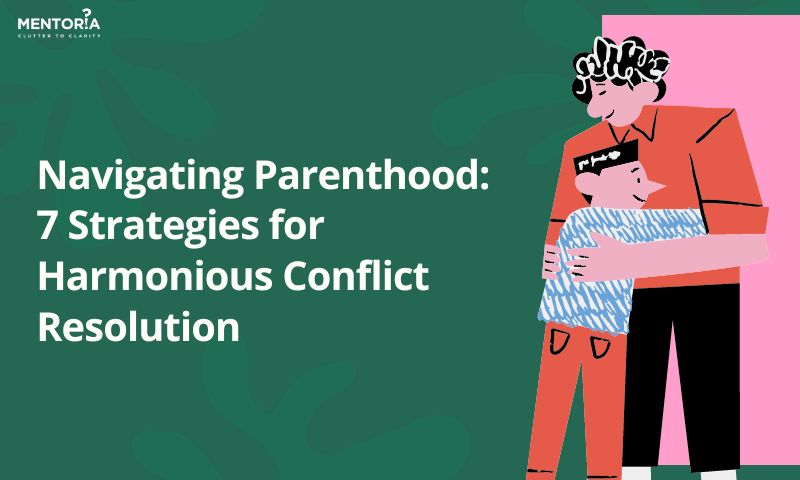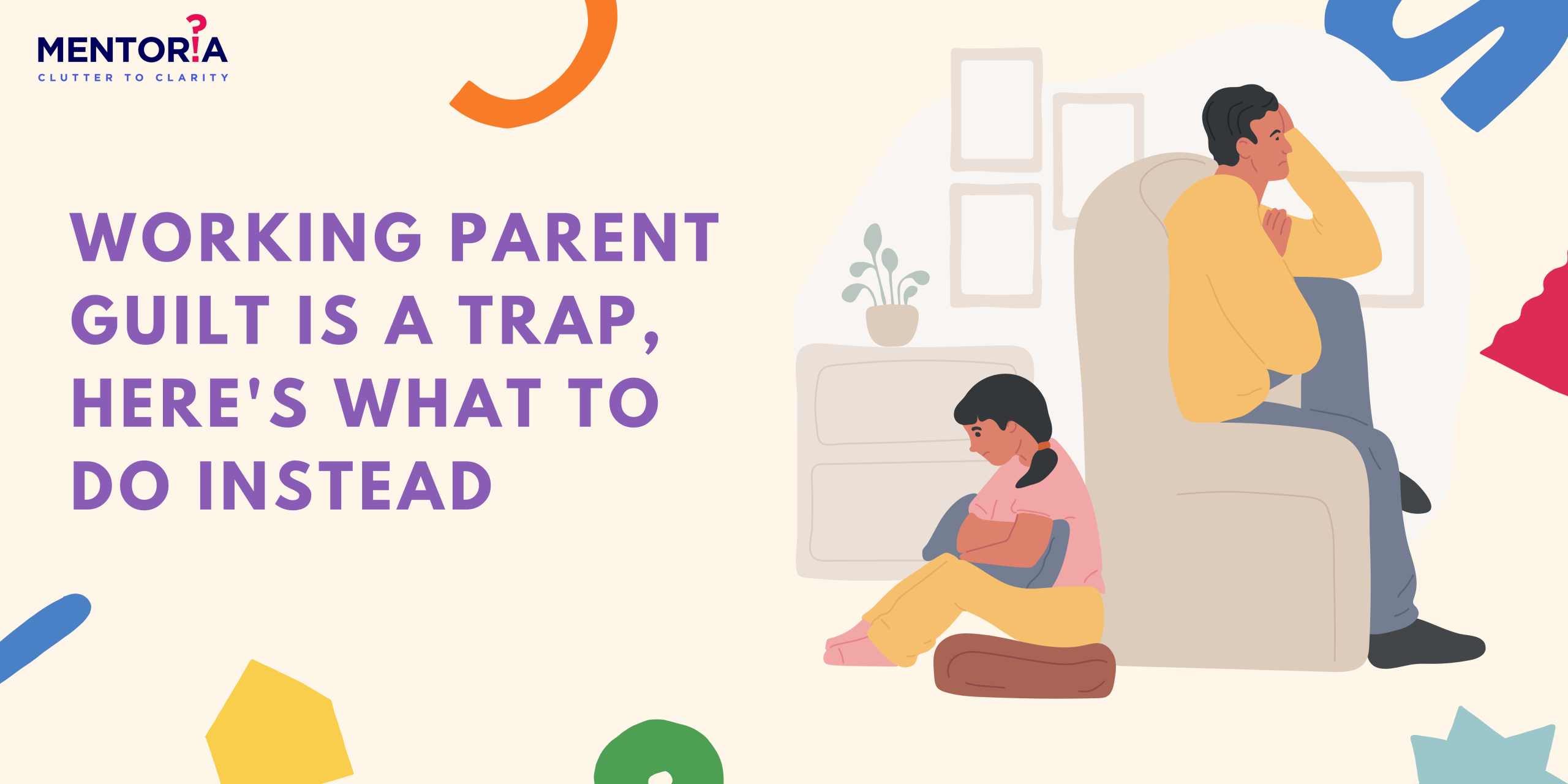Navigating Parenthood: 7 Strategies for Harmonious Conflict Resolution

Being a parent can be a wild ride. The combination of joyful and teeth-gritting, hair-pulling moments is quite fantastic. But let’s face it, arguments and conflicts between parents and children can be quite stressful for everyone involved. So let’s discuss diplomatic ways to resolve these family conflicts and maintain harmony.
The thread that binds your family together is communication. Along with speaking your thoughts, you also need to listen and be sympathetic. The goal here is to have a courteous conversation where both parents are given a chance to speak. And if you establish clear ground rules and expectations within the family, it can help prevent misunderstandings and disputes brought on by divergent viewpoints.
Every parent participating in this gig brings their own baggage and perspectives to the table. Disagreements about discipline, education, and ideals are to be expected. Therefore, you need to be willing to compromise and work together. Work as a team to combine your individual parenting approaches into a unified plan.
In this job of parenting, emotions, oh boy, they may run wild. It’s crucial how you handle them during a heated debate. Keep your composure and employ some conflict-resolution strategies, such as mediation or active listening. And if things are out of hand, don’t be afraid to ask professionals for advice, such as family therapists or support groups. In order to help you and your parenting partner deal with these disagreements while maintaining harmony and thinking about your children, we’re going to break down seven clever solutions.
Talk It Out Like Buddies
Effective communication is like the secret sauce in resolving parenting conflicts. You’ve got to really hear each other out, share your thoughts and feelings without turning it into a courtroom drama, and be ready to meet in the middle. So, let’s make chatting about parenting stuff a regular thing. It’ll help you sort things out and work as a team.
Active Listening: When your children are expressing themselves, give them your full attention. Make eye contact, nod, and use verbal cues (like “I understand,” “Go on,” or “Tell me more”) to show that you are actively listening. Avoid interrupting or jumping to conclusions.
Empathetic Understanding: Try to see the situation from your child’s perspective. Empathise with their feelings and validate their emotions, even if you don’t necessarily agree with their point of view. For example, you might say, “I understand that you’re feeling upset about this.”
Open-Ended Questions: Ask open-ended questions to encourage your children to share more about their thoughts and feelings. Questions like “Can you tell me what happened?” or “How do you think we can resolve this?” promote discussion and self-expression.
Rules of Engagement
Confusion and disputes can rear their heads when mom and dad have different rulebooks for the kiddos. You’ve got to sit down, hash it out, and decide on some ground rules for things like chores, screen time, and how the little ones should behave. When you both present a united front, it’s like a game-changer that’ll clear up the confusion and keep the peace.
Involve Everyone: When establishing ground rules, involve all family members in the process. This can be done through a family meeting or a discussion where everyone has a chance to express their opinions and contribute to the rules. This inclusiveness helps promote a sense of ownership and responsibility for the rules.
Keep Rules Age-Appropriate: Ground rules should be tailored to the age and developmental stage of each child. What is expected of a teenager may differ from what is expected of a preschooler. Ensure that rules are realistic and achievable for each family member.
Clarity and Specificity: Make sure the rules are clear and specific. Vague rules like “Be good” or “Behave” can lead to misunderstandings. Instead, create rules such as “No yelling in the house” or “Homework should be completed before screen time.”
Two Heads Are Better Than One
It’s Decision time, folks. When you’re making big calls in parenting, like what to do about discipline, where to send your kids to school, or which after-school activities they should join, make sure both parents have a say. Share your thoughts, concerns, and what you’d prefer. And if there’s a need for compromise, then go for it. This way, you’re making choices together and putting the kids first.
Prioritise Important Decisions: Recognise that not all decisions are of equal significance. Reserve your collaborative decision-making efforts for major choices, such as schooling, extracurricular activities, and family vacations. This approach prevents decision fatigue and empowers your children to have a say in important matters.
Decision-Making Process: Establish a structured process for making decisions as a family. This could involve brainstorming options, discussing pros and cons, and ultimately arriving at a decision. Involving children in this process can teach critical thinking and problem-solving skills.
Model Decision-Making: Demonstrate healthy decision-making by discussing your thought process with your children. Explain how you arrive at choices, the factors you consider, and the consequences you anticipate. This modelling helps children understand the decision-making process.
Different Strokes for Different Folks
We all have our own unique parenting styles based on our own childhoods and beliefs. It’s cool, really. What you should do is respect those differences. Try to see eye to eye, and if you don’t, have a chat and find a middle ground. Combining the strengths of each style can be awesome for the kids and your family vibe.
Compromise and Collaboration: When differences in parenting styles arise, aim for compromise and collaboration. Find common ground by identifying shared goals and values. For example, if one parent believes in strict discipline and the other in a more lenient approach, agree on some consistent boundaries and consequences.
Respect Each Other’s Role: Recognise and respect the unique strengths and contributions each parent brings to the family. Acknowledge that different parenting styles can offer a well-rounded approach, providing a variety of perspectives and skills.
Private Discussions: If you have concerns or disagreements about your partner’s parenting style, address them privately, rather than in front of your children. Publicly criticising or undermining your co-parent can lead to confusion and conflict for your kids.
The Art of Making Peace
When a showdown happens, it’s time to put on your conflict-solving hats. Use things like active listening, speak from the heart (use “I” statements), and don’t point fingers. Instead of dwelling on the problem, focus on the solution. If things get really rough, bring in a mediator, like a counsellor or a trusted buddy, to give you a fresh perspective and help you sort things out.
Stay Calm: It’s crucial for parents to remain calm and composed when conflicts occur. Your children often look to you as role models for how to handle challenging situations. Taking a deep breath and regulating your emotions can set a positive example.
Active Listening: Listening is a fundamental component of conflict resolution. Give each person involved in the conflict an opportunity to express their feelings and concerns. Ensure that they feel heard and understood before moving forward.
Clarify the Issue: Make sure everyone is on the same page about what the actual issue or problem is. Sometimes, conflicts arise from misunderstandings or miscommunication. Clarify the situation to identify the root cause.
Cool, Calm, and Collected
Keeping your cool is key during a parenting brawl. Take a moment to look inside yourself and see what’s getting you all worked up. If you’re mad, frustrated, or stressed, don’t let it blow up. Try stuff like deep breathing, mindfulness, or just stepping away for a breather. It’ll make sure things don’t go nuclear and help you keep the peace. When you feel a disagreement escalating, it’s okay to take a break. Politely excuse yourself from the conversation and step away for a few minutes. This break can provide you with time to cool off and collect your thoughts.
Practise Deep Breathing: Deep, slow breaths can help you calm down. Try inhaling deeply through your nose for a count of four, holding for a count of four, and exhaling through your mouth for a count of four. This simple technique can help you regain control of your emotions.
When in Doubt, Call for Backup
If you’ve tried everything and conflicts are still running wild, don’t hesitate to get the experts involved. Family therapists, counsellors, or support groups can give you the tools and strategies you need to tame the parenting chaos. Sometimes, a little outside help can make all the difference.
Let’s discuss the insane adventure that is parenthood, in which feelings, encounters, and obligations create a crazy, intricate tapestry. For parents and children, it’s like riding a rollercoaster of pleasures, difficulties, and progress. Conflicts, however, are only the natural hiccups in that voyage. The trick ingredient? effective negotiation of differences. It may create harmony out of chaos, strengthen family ties, and pave the way for kids to grow up happy and healthy. What then is the secret ingredient? Talking is the key, people. Talking about your concerns, feelings, and fears with one another while paying close attention. You’re on the correct track once your communication skills are good. A winning recipe can be created by adding some clear expectations and regulations.
Restoring Harmony Through Mentoria
Seeking comfort during conflict is crucial because it provides a safe and supportive space for individuals to express their emotions, fears, and concerns without judgement or criticism. Through Mentoria, children will not have to be afraid of exploration and can find their own niche through endless information and guidance. Parents can also heave a sigh of relief through the safety nets available, and will not have to worry about it anymore. Through our workshops specially curated for working parents and career guidance from our top-notch counsellors, we’re here to help!









